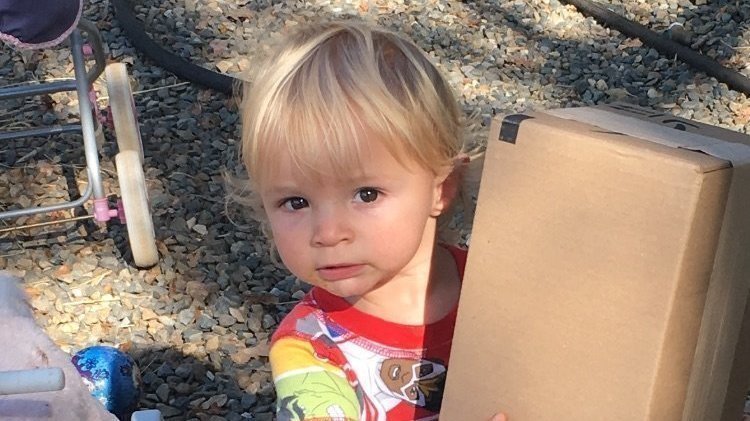The issue of breastfeeding without consent became real for Stephanie Hanna when she found out a daycare worker had fed her 15-month-old son without her permission. This unexpected breach of trust not only disturbed Stephanie deeply but also revealed a surprising legal gap: in many states, including California, breastfeeding someone else’s child without parental consent is not against the law. Stephanie’s experience raises important questions about parental rights, daycare boundaries, and the protections families have in childcare settings.
Stephanie’s Shocking Discovery at Daycare

Stephanie’s unsettling discovery happened in July 2018 at Happy Kids Pre-school & Daycare, where she sent her son Westley. When Stephanie arrived to pick up Westley that day, she overheard a troubling conversation between two daycare workers. One teacher reportedly said, “He’s obsessed with boobs,” followed by laughter. When Stephanie asked what was going on, one teacher admitted to breastfeeding her son without any prior approval. The teacher explained she was feeding her own baby and thought it would be okay to “just stick it in there and see what he does.” She even said Westley seemed to like it, noting he had some milk on his lip afterward. This casual admission left Stephanie stunned and feeling violated.
The Emotional Impact on Stephanie

For any parent, the idea of someone else breastfeeding their child without permission can feel like a deep invasion of personal boundaries. Stephanie described feeling shocked and violated by the situation. She also felt disturbed by the daycare workers’ comments, which seemed to make light of the serious nature of what had happened. She recalled in interviews, “I felt violated and disturbed by the comments made about the incident.” Though she managed to stay calm when she picked up Westley that day, the emotional impact weighed heavily on her. Stephanie’s story quickly struck a chord with many parents, sparking conversations about trust and respect in childcare.
Attempts to Address the Incident with Daycare Management

Stephanie tried to resolve the issue directly with the daycare. When she reported the incident about breastfeeding without consent to the daycare’s director, she received a dismissive response. The director suggested the teacher might have misspoken or that there was a misunderstanding due to language differences. Later, when Stephanie raised the matter with the daycare owner, she was told, “It accidentally squirted in his mouth.” This response trivialized the seriousness of what had happened and left Stephanie feeling further betrayed and unheard. The daycare’s failure to acknowledge the violation only added to Stephanie’s distress and prompted her to take further action.
The Legal Reality of Breastfeeding Without Consent

One of the most shocking facts in Stephanie’s story is that breastfeeding without consent is not illegal in many states. After reporting the incident to local law enforcement, Stephanie learned there was no specific law addressing this kind of situation. The sheriff’s office forwarded the case to sex crimes detectives, who expressed surprise but confirmed that no crime had been committed under existing laws. In many places, the act of breastfeeding without parental permission falls into a legal gray area because laws around bodily autonomy, parental rights, and breastfeeding have not caught up to these unique scenarios. This legal gap left Stephanie feeling powerless and frustrated.
The Civil Lawsuit and Teacher’s Deposition

Refusing to let the issue go, Stephanie and her husband filed a civil lawsuit against the daycare to hold them accountable regarding the breastfeeding without consent. During the legal process, the teacher involved gave a deposition that revealed troubling details. She admitted to breastfeeding in the classroom without a cover, exposing her breasts to multiple children, not just Westley. She said Westley would often watch her breastfeed and that on the day of the incident, another teacher placed Westley next to her, which led to the accidental ingestion of breast milk. These revelations raised serious questions about daycare practices, the boundaries between caregivers and children, and the importance of respecting parental instructions.
Read More: Mom Who Nurses Her 5-Year-Old Wants To Normalize Extended Breastfeeding
Ongoing Legal Battle and Its Emotional Toll

The civil case remains unresolved, continuing to be an emotional and financial strain on Stephanie and her family. Legal battles like this can drag on for years, adding stress to already difficult circumstances. For Stephanie, the fight isn’t just about personal justice but about protecting other families from similar violations. The ongoing case sheds light on the challenges parents face when the law doesn’t clearly support their rights. Meanwhile, the daycare continues to operate, leaving questions about accountability and child safety in childcare centers.
Advocacy for Change and Public Awareness

Stephanie has taken her experience beyond the courtroom. She started a petition on Change.org calling for legislation that makes breastfeeding someone else’s child without parental consent illegal. Her campaign also asks for daycare regulations to require staff to strictly follow parents’ written care plans and respect boundaries around feeding and physical contact. The petition has gained significant support from concerned parents and childcare advocates nationwide. Stephanie’s efforts highlight the need for clearer laws and policies that protect children’s health and parental rights, preventing such boundary violations from happening again.
What Parents Should Know About Breastfeeding Without Consent

Stephanie’s story serves as an important wake-up call for parents about the importance of clear communication and oversight in childcare. Parents should thoroughly discuss feeding routines and boundaries with caregivers and insist these be documented in writing. Visiting childcare centers regularly and asking detailed questions about staff training and policies can also help protect children. Being proactive about childcare expectations can reduce the risk of misunderstandings or unauthorized actions. While Stephanie’s case is rare, it highlights the real need for parents to advocate strongly for their child’s well-being.
Conclusion

Stephanie Hanna’s experience shows how serious the issue of breastfeeding without consent can be for parents and children. The story reveals a troubling legal gap that allows such boundary violations to happen without clear consequences. Stephanie’s ongoing fight for justice and legislative change highlights the urgent need for laws that protect parental rights and children’s safety in childcare settings. Parents entrust caregivers with their most precious responsibility, and that trust must never be broken. This story is a reminder to stay vigilant, communicate openly with childcare providers, and demand respect for your family’s boundaries. With more awareness and better laws, incidents like Stephanie’s can hopefully be prevented in the future.
Read More: Waitress Gives Mom Free Pizza For Breastfeeding

